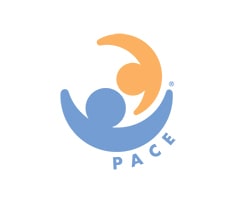Pacific Autism Center for Education
Thanks for all your support and votes.
Voting is now closed for this competition.
[00:00:04] PACE in a word creates hope.
[00:00:07] The clients that we work with at PACE are on the moderate to severe end of the autism spectrum. [00:00:13] We have our pre-school program, our school program, our Faces program, and our residential program. Through those programs we're able to assist kids with autism 3-4 years old, through high school people in our school program, and then further into our residential, we're helping adults with autism. [00:00:36] One of the things that really drives me at PACE is the vision of developing a world in which individuals all abilities can lead fulfilling lives. [00:00:46] We are like gardeners. We take them in our hand, shade them, [00:00:52] And we watch them grow and blossom.Pacific Autism Center for Education
Founded in 1989, the Pacific Autism Center for Education (PACE) provides high-quality school, housing, early intervention, and behavioral therapy programs for children and adults with autism.
We serve individuals who live with moderate-to-severe autism, especially those who struggle with communication (approximately 70% of clients in our programs are non-verbal). Our comprehensive services include Sunny Days Preschool, an inclusive preschool for children ages 2 1/2- 6, the PACE School serving ages 6-22, PACE Residential group homes for children and adults, Faces Behavioral Services for Children providing one-on-one Applied Behavior Analysis (ABA) for those with behavioral challenges, and Porchlight Autism Education Series, a free e-learning training system with over 50 modules for parent and caregiver solutions to implement at home.
PACE was founded in 1989 by a group of concerned parents, community members, and educators as a private, nonprofit 501 (C) (3) organization to meet the critical need of providing education and care for children and adults with autism/developmental disabilities and their families. Prior to this time, many of our students had been placed in inappropriate classroom settings and many of our residential clients were housed in unsuitable state hospitals and development centers. The state system was clearly challenged to provide more than the maintenance of the ongoing needs of persons with developmental disabilities. Without the support of an encouraging, attentive environment, the ability to develop the skills necessary for achieving integration into the community was doubtful.
PACE was born after years of futile attempts to work within the traditional system to meet the specialized needs of persons with autism and started in 1989 with 14 students and two group homes. PACE currently serves over 60 students in our preschool and a K-12 school, houses 36 children and adults in our residential program, and provides behavioral services for Bay Area families.

Our contact info:
(408) 625-6174, melissawatkins@pacificautism.org
